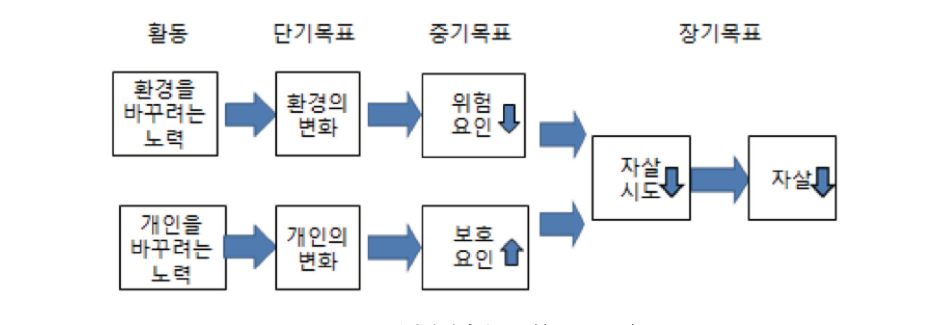Abstract
본 연구는 게이트키퍼를 대상으로 자비심 기반의 차명상을 활용한 자살예방 집단상담프로그램을 적용하여 참가자의 자기자비에 미치는 영향을 알아보고자 하였다. 연구대상은 서울 중구 보건소에서 게이트키퍼 양성 교육을 수료한 게이트키퍼 중에서 차명상을 활용한 자살예방프로그램 참가 신청자들을 실험집단과 통제집단에 각 12명씩 무선 배정하였다. 실험집단에는 차명상을 활용한 자살예방 집단상담프로그램을 2시간씩 총 8회를 실시하였고 측정도구로는 자기자비척도를 사용하였으며 효과를 검증하기 위해 Ranked ANCOVA 검정을, 그리고 상관관계 분석을 위해 Spearman의 rho를 사용하였다. 그 결과 차명상을 활용한 자살예방 집단상담프로그램에 참여한 참가자의 자기자비(전체)와 자기자비 하위요인이 증가 되었으며 자기냉담 하위요인은 감소하였다. 본 연구는 차명상을 활용하여 자살예방 집단상담프로그램을 개발하고 이를 게이트키퍼에게 적용하여 그 효과를 검증하였다는 점에서 그 의의가 있다. The purpose of this study was to investigate the effect of the tea meditation program to prevent suicide for gatekeepers on self-compassion. The participants of this study were gatekeepers who completed the gatekeeper training at Jung-gu Public Health Center in Seoul. 24 participants were assigned to the experimental group and the control group by random assignment. In the experimental group, the tea meditation program for suicide prevention was performed 8 times for 2 hours every week. The self-compassion scales(Korean Version of the Self-Compassion Scale:SCS) were used as the measurement tools. The ranked ANCOVA test was used to verify the effect and Spearman rho was used for correlation analysis between positive correlation factors and negative correlation factors. As a result, self-compassion degree of gatekeepers participating in the tea meditation program for suicide prevention were improved and negative correlation’s scales decreased. Conclusion: The meaningful point of this study is to develop and verify an tea meditation program for suicide prevention and to apply it to gatekeepers.
Figures & Tables

Figure 1. 일반적 자살예방모형(SPRC, 2001)


